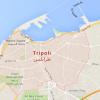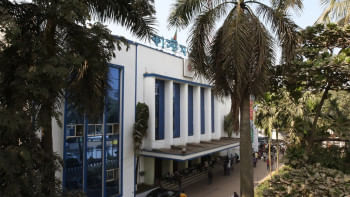Strife-Torn Libya: Govt to bring Bangladeshi citizens home

The government has planned to bring home the Bangladeshis facing high level of vulnerabilities in and around Tripoli, as fighting continues between the UN-backed Libyan government and Libyan National Army.
“Fifty Bangladeshis have agreed for voluntary repatriation. We will charter a plane as soon as the number reaches 150. IOM assists us in the repatriation process,” ASM Ashraful Islam, counsellor (labour) of Bangladesh embassy in Tripoli, told The Daily Star by phone yesterday.
He said around 300 Bangladeshi workers had been relocated to the labour accommodations in safe zones of Tripoli since early April when the Libyan National Army led by Field Marshal Khalifa Haftar launched assault on Tripoli.
Last week, air strikes hit the Libyan capital as forces loyal to Khalifa Haftar pursued a three-week campaign to take over Tripoli and also confirmed for the first time that they had dispatched a warship to an oil port.
The offensive has exacerbated chaos in Libya since the toppling of Muammar Gaddafi in 2011, threatens to disrupt oil supplies, boost migration across the Mediterranean to Europe and scupper UN plans for an election to end rivalries between rival administrations in east and west, reports Reuters.
Talking to this newspaper, Ashraful said, “Sometimes, there are bombings inside Tripoli. Thus, vulnerabilities for us have gone up.”
Most foreign embassies in Tripoli have been closed, he said, adding that the Filipino embassy there issued alert level-4, the highest level of warning for their citizens in Tripoli.
With instructions from the foreign and expatriates’ welfare ministries in Dhaka, the Bangladesh embassy in Tripoli has been asking the Bangladeshis in and around Tripoli to contact them and let it know if they want to return home due to increasing fighting.
The embassy has a helpline number -- (+218-21-4911198-99) and is ready to rescue those seeking help, the labour counsellor said.
“We are ready to arrange voluntary repatriation,” Ashraful said, but added that the workers were not very much willing to return home possibly because they spent a good amount of money to reach Libya through brokers.
He said they had estimated that some 500 Bangladeshis were living in the suburbs of Tripoli where the Libyan National Army was fighting with the UN-backed government to take control of Tripoli.
Ashraful said in the initial days, around 300 were relocated from those areas, but the others did not communicate with the embassy officials. “We think they took shelter in safe places,” he said and urging all Bangladeshis to contact the embassy officials if they were in any trouble.
He said the Bangladesh embassy had not yet received any reports of casualties of any Bangladeshis.
According to the Bangladesh embassy in Tripoli, about 20,000 Bangladeshis live in Libya and around 5,000 of them live in Tripoli and its suburbs.
Bangladesh stopped sending workers to Libya since 2014 because of the consequences of the civil war in the country since 2011.
Some 36,000 Bangladeshis were repatriated from the North African country after the Libyan crisis begun in 2011. Almost similar number of Bangladeshis chose to stay there. Many faced kidnapping by the local gangs and had to pay ransom for release. Some of them crossed the Mediterranean to reach Europe, according to the embassy officials.
Ashraful said, “It seems that the trend of crossing the sea to go to Europe stopped now because of Italy’s strong surveillance.”
The embassy, with support from the Red Cross, is providing assistance to the Bangladeshis in Tripoli.
“Our main objective is now to ensure safety of the Bangladeshis in Tripoli and repatriate those who want to,” he added.

 For all latest news, follow The Daily Star's Google News channel.
For all latest news, follow The Daily Star's Google News channel. 




Comments